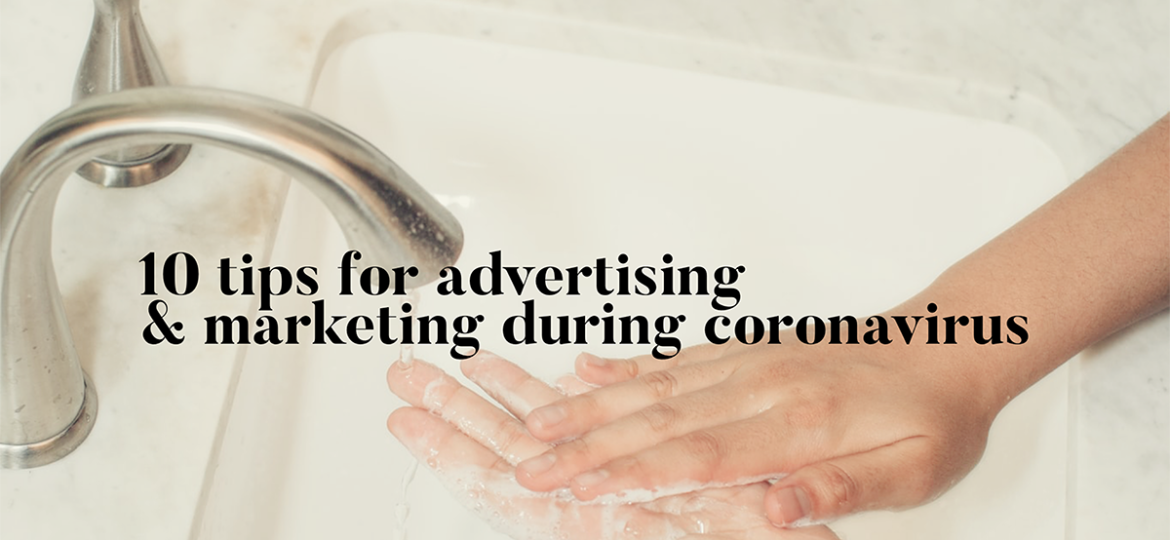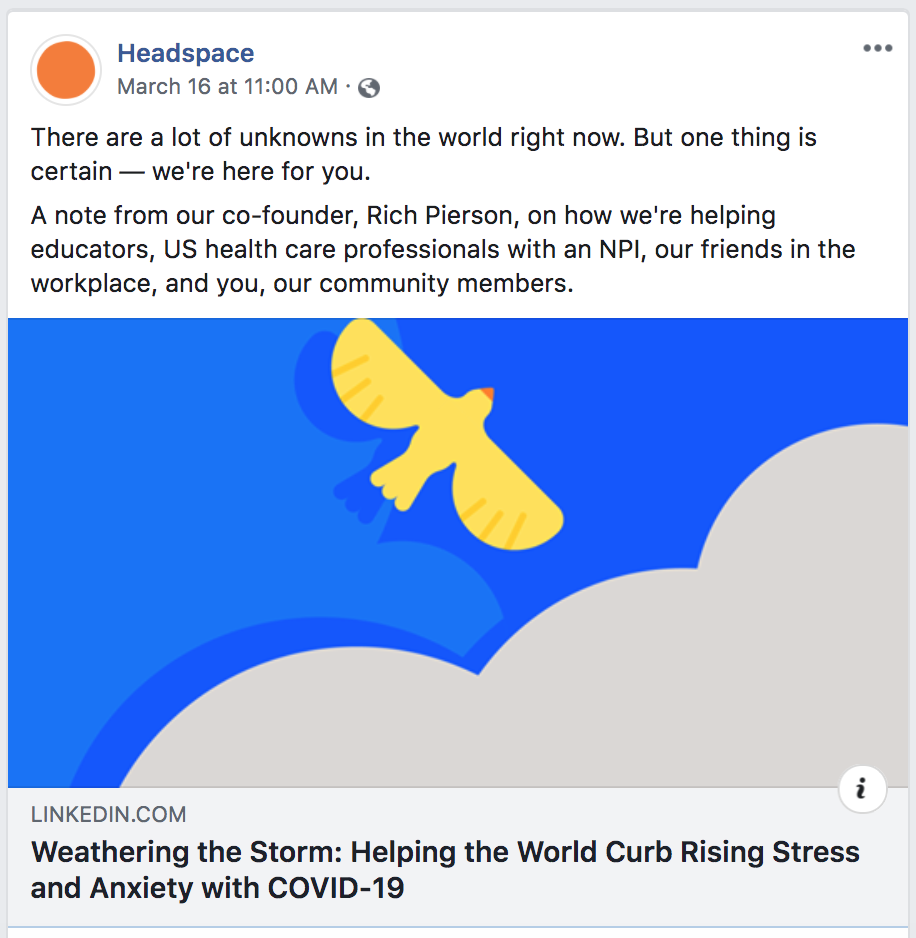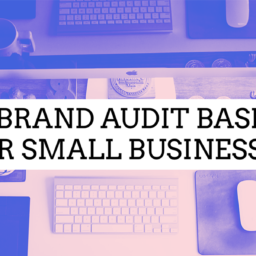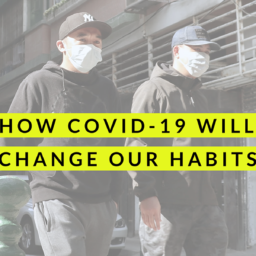
As we continue to face the global health crisis that is COVID-19 (Coronavirus), both consumers and advertisers are taking major hits from all sides. People in all affected countries are now encouraged to take part in “social distancing.” This practice, alone, financially hurts companies across almost all sectors. (Economic pain aside, the goal of social distancing is to help slow or stop the transmission of disease; this allows for healthcare establishments to better treat current patients, and better prepare for future ones.) But most businesses—from mom-and-pop shops to major airlines—will suffer during this uncertain time.
Perhaps counterintuitively, this is not the time to stop your advertising and marketing efforts.
Tweak your strategy? Sure. Reevaluate customer needs? Absolutely. Cut poor-performing products and eliminate low-yield endeavors? Yes, we’re with you. But DON’T STOP your advertising efforts, completely.
Companies that put customer needs under the microscope, take a scalpel rather than a cleaver to the marketing budget, and nimbly adjust strategies, tactics, and product offerings in response to shifting demand are more likely than others to flourish both during and after a recession.
John Quelch & Katherine E. Jocz, Harvard Business Review
Quelch and Jocz further explain, “On average, increases in marketing spending during a recession have boosted financial performance throughout the year following the recession.” And although this information is in reference to the 2008 recession, what’s past is prologue. Economic recessions, natural disasters, global health concerns—these are the types of catastrophic events that cause major shifts in the marketplace.
It’s a sensitive time, particularly for advertisers and marketers. Although it is our job to continue to promote goods & services, there’s a fine line between being mindful and newsjacking. It’s our responsibility to err on the side of caution when crafting and publishing brand messages, and to put our empathetic foot forward.
Here are Media Garage Group’s top 10 tips for advertising and marketing during Coronavirus:
1. STAY IN FRONT OF YOUR AUDIENCE, RESPECTFULLY
Right now, if you’re a brand like Clorox or Purell, you’re most likely having issues with supply rather than demand: Consumer demand for hand sanitizer has grown by 1,400 percent from December 2019 to January 2020. For the rest of us—brands that may not seem as “essential,” or brands that offer higher-end, or disposable income-related goods or services—we still need to get ourselves out there. Jason Keith, CEO and lead analyst at Social Fresh, recommends to, “Focus on positive ways your brand can create engagement or at a minimum stay top of mind, but don’t stretch beyond what is reasonable.” Think thoughtful, relevant content as it relates to your customers’ current situations.
One great example of this is from the meditation and sleeping app, Headspace. Their Co-Founder and CEO, Rich Pierson, published an article on LinkedIn explaining, “Here at Headspace, we’ve heard stories of anxiety, uncertainty and fear from hundreds of business leaders, healthcare providers, gig economy workers, teachers, parents, students and caregivers all over the world.” He continued by stating, “So today, we’re taking several steps to help.”

These steps include providing free subscriptions to U.S. healthcare providers, teachers and caregivers; unlocking free, specially curated mindfulness content; and sharing Headspace for Work, which was previously only available to clients and customers.
2. REASSURE CLIENTS & CUSTOMERS
We all have things we’re comforted by. Living in uncertainty, in particular, drives us to seek the familiar—the people, pets, places and products who/that provide a sense of security. During hard times, the best thing brands can do is stay calm and be as sensitive as possible when adding to the noise.
- Put customer service at the forefront of your messaging.
- Stop ALL “scheduled” posting.
- Concentrate on current customers, not converting new ones.
- Craft messaging that reinforces an emotional connection and reassures customers that “we’re in this together.”
3. REDIRECT DIGITAL MARKETING BUDGET
If you’re currently running banner ads, freeze them until the end of the month. Banner ads have limited space, and right now, brands need to convey messages that are especially nuanced. Redirect those ad dollars into efforts that can provide more real estate (e.g., content) and measurable results (e.g., social media ads).
4. PROVIDE HELPFUL INFO, BUT STAY IN YOUR LANE
In times like these, it is of the utmost importance to be self-aware. Know who you are as a brand, and know what fits within the “tone” of your brand’s personality. A local restaurant shouldn’t necessarily be sharing statistics from the CDC. The restaurant could, however, create an easy takeout entree or meal kit and promote that. The goal is to add value or provide solutions for customers.
Local distillery, Kozuba & Sons, is doing just that. They’re currently halting all liquor production and reallocating their resources—in this case, their highest-grade spirit that would’ve been used to make vodka—to produce hand sanitizer.

5. REQUEST BONUS SPOTS FROM MEDIA PARTNERS
Contact all the TV, radio and outdoor sales representatives you work with to inquire about available inventory. More than likely, the reps will have spaces they need to fill during this crisis. You may be able to secure free ad space—therefore, more frequency of your advertising message—just by asking for it.
6. RESTRUCTURE PAYMENT SCHEDULE
Money’s tight for everyone right now. So unless you’re Clorox or Purell, it may behoove you to work with your media partners to request that your campaign stay active, but restructure your payment schedule. Perhaps you can come to an agreement that you’ll pay in full at the end of your contract; or you can divide this month’s payment into installments. One potential solution is to split your March payment, along with initial planned spending, into four installments; paying in September, October, November and December. This agreement would allow you to reduce your current cash outlay and take some of the pressure off.
7. REVIEW ALL CANCELLATION POLICIES AND MAKE REQUESTS AS NEEDED
Television and radio stations will often have a two-week cancellation policy. While advertising and marketing during Coronavirus, it’s nearly impossible to prepare for what will happen day-by-day, let alone two weeks in advance. Work with your media partners to see if you can negotiate a shorter cancellation period. For example, if you’re able to secure a one-week cancellation period, it will be much easier to pull your scheduled ads if you decide it’s the best decision for your business.
8. AVOID INSENSITIVE OR OPPORTUNISTIC MESSAGING—USE COMMON SENSE!
Some top-tier brands like Hershey’s and KFC have decided to change their creative in response to COVID-19 fears. Physical contact was at the center of both brands’ original spots—this would’ve clearly opposed health officials’ social distancing recommendations. On one hand lies the sentiment that consumers are rationally minded. Tim Smith, president of the agency Chemistry, says, “You’ve got trust in your audience to know you’re not saying you’re promoting things irresponsibly just because you’re showing somebody hugging.”
On the other hand, it’s a particularly sensitive time for people and any marketing misstep could be amplified by this heightened state. “It can create a situation where there’s a lot of negative sentiment associated with a brand, and then that can spiral out of control, even if the reality is that we need to be showing each other some love as a society these days,” explains Jesse Purewal, partner at growth consultancy Prophet.
One thing is for sure: how marketers handle Coronavirus will certainly separate the pros from the amateurs.
Remember when everyone thought they could buy social media services for a few hundred dollars because their kid in college could do it? Now this will reset the playing field.
Kristen Ruby, Adweek
9. EMPLOY A ‘MARATHON NOT SPRINT’ MENTALITY
Although it may be a good time to reflect on your messaging and make adjustments where necessary, no professional worth her or his salt would ever recommend a full marketing shut down. You still have a business to run. In the Harvard Business Review, Quelch and Jocz write, “During recessions it’s more important than ever to remember that loyal customers are the primary, enduring source of cash flow and organic growth. Marketing isn’t optional—it’s a ‘good cost,’ essential to bringing in revenues from these key customers and others.”
Now is the time to reinforce your brand’s core proposition, not the time to slam on the brakes. Eliminating your advertising and marketing efforts altogether will result in spending much more to regain your share of voice once we’re through the weeds. Slow and steady wins the race.
10. DO NOT MAKE MAJOR DECISIONS OUT OF FEAR
Knee-jerk solutions to temporary problems can have long-term effects on business profitability. Everyone is scared right now, but as with anything, this too shall pass. And once it does, you’ll want to be able to hit the ground running. A Nielsen study of the U.S. market highlights how quickly consumers can digest and process new outbreak information and then make spending decisions tied to that information. Continue creating ad campaigns, work ahead and be prepared for good news. Because, eventually, it will come.
In conclusion, wash your hands, stay home when you can, and remember that—despite how it may feel right now—this is temporary.







